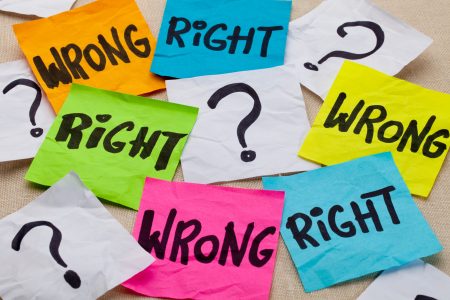Widgetized Section
Go to Admin » Appearance » Widgets » and move Gabfire Widget: Social into that MastheadOverlay zone
Building a Framework for Accountability: Ethics and Conduct in Municipal Government
The views expressed are those of the author and do not necessarily reflect the views of ASPA as an organization.
By Tanya Settles
June 20, 2025

Municipal governments operate at the closest level to the public, where decisions directly affect people’s everyday lives—from zoning and public safety to utilities and social services. Because of this proximity and impact, public trust is essential. Two of the most important tools for building and maintaining that trust are ethics and conduct policies. While often used interchangeably, these concepts are fundamentally different. Understanding the distinction between ethics and conduct and why both are necessary can help local governments foster a culture of integrity, accountability and public confidence.
Defining Ethics and Conduct
Ethics refers to the principles and values that guide individuals in determining what is right or wrong. Ethics are rooted in broader moral frameworks—such as public trust, fairness, honesty and respect—and often go beyond what is legally required or procedurally defined. Ethical standards ask governments to consider not just what they do but why they do it. In democracies, employees and the public both have a right to know how decisions are made that promote the public interest and what the government does to carry out those decisions.
Conduct, on the other hand, refers to specific rules, behaviors and expectations that are formally outlined in personnel policies, codes of conduct or both. Conduct is observable, enforceable and often procedural. It sets boundaries around actions such as conflicts of interest, misuse of public resources or the actions and behaviors of how people engage in their work and role. Unlike ethics, which often operate in gray areas, conduct policies are typically more specific and directed toward behaviors that support the broader ethics of the government.
This distinction becomes especially important in complex scenarios. A framework that considers ethics and conduct together can fill the gap between the principles and values of ethics with boundaries and rules of conduct. In this regard, mid- to executive-level managers have an important responsibility to model behavioral expectations of employees that prioritize the public interest.
The Role of Ethics in Municipal Government
Ethical considerations encourage employees and leaders to think about the broader impact of their decisions on fairness, integrity and valuing the public interest above personal gain. An ethical perspective not only sets parameters for high-level decision making, but its application can also reveal unintended consequences that compromise public trust. Ethics policies provide guidance to employees that sets an ethical organizational culture. Moreover, as Linda Fisher Thornton found, ethics is contagious and leaders set the tone. When city leadership models integrity and openness, it travels throughout the organization in ways that shape individual-level decision making, service delivery and community engagement. Ethics fosters internal cohesion and external legitimacy.
The Role of Conduct Policies
Conduct policies are equally important. They provide clarity and consistency in expectations, especially for personnel matters and legal compliance. Conduct policies establish the basis for discipline, investigation and due process when an employee violates workplace standards or engages in misconduct. Conduct policies provide a roadmap for behavior. These rules protect the organization from liability, ensure fairness in disciplinary actions and contribute to a professional work environment. By articulating expected behaviors, conduct policies help reduce confusion and reinforce a shared understanding of what it means to serve in the public interest.
How Ethics and Conduct Work Together
When properly aligned, ethics and conduct form a complementary framework. Conduct policies create boundaries and structure, while ethics provide the judgment and values needed to act responsibly when those boundaries are tested.
Consider the following example: a city department director is invited to speak at a developer-funded event. The conduct policy does not explicitly prohibit participation, but the ethical question remains—does this appearance create the perception of favoritism? Even in the absence of a rule violation, the official’s ethical reasoning is critical to safeguarding the public’s trust.
Together, ethics and conduct enable municipal governments to address both compliance and character. Ethics answers the question, “Is this the right thing to do?” Conduct answers, “Is this allowed?”
Building a Culture That Values Both
To be effective, municipal leaders should invest in both ethics and conduct enforcement. Ethics training, values-based leadership and public dialogue can reinforce the moral purpose of public service. Simultaneously, clear codes of conduct, fair enforcement mechanisms and consistent discipline build the structure necessary for accountability.
In today’s environment of heightened public scrutiny, municipal governments must do more than follow the rules—they must lead with integrity, transparency and work to build public trust in a way that puts the interest of the community above their own. By differentiating between ethics and conduct and embracing the importance of both, local governments can set a high standard for public service that earns and sustains the trust of the communities they serve.
Author: Tanya Settles is the CEO of Paradigm Public Affairs, LLC. Tanya’s areas of work include relationship building between local governments and communities, restorative justice and policy and program evaluation. Tanya can be reached at [email protected]. The opinions in this column and any mistakes are hers alone.


Follow Us!